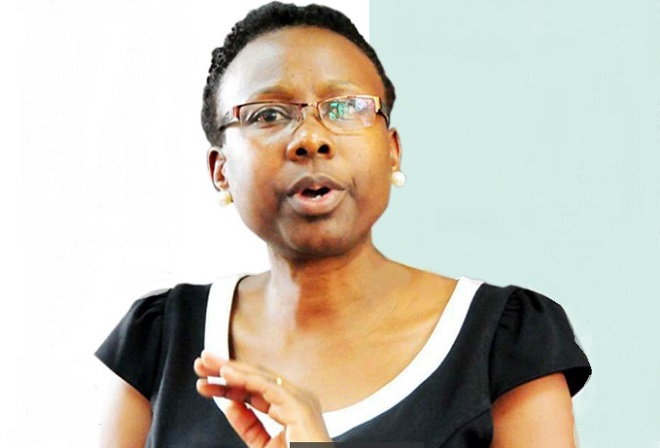
New Minister of Health is a thoroughbred technocrat. Will that help her fix a sector that politicians almost killed?
Dr. Jane Ruth Aceng, the new minister of Health, is very authoritative – in a soft spoken way. So it is easy to guess that she will want to fix a ministry that is described by many as “complex”. She, however, comes to the helm at a time when the Ministry of Health appears buffeted with mega failures to provide services to the public amidst what critics are calling a “lack of leadership”. Aceng will want to provide that leadership. The question is whether she will succeed?
Dr. Michael Lulume Bayiga, a former Shadow Minister of Health and member of the Health Committee of the previous parliament, jocularly says of Aceng: “The new health minister is an old one”.
Bayiga is referring to Aceng’s long tenure as Director General of Health Services since 2011. This is among the highest positions in the ministry and Bayiga says Aceng must now deal politically with problems in the Ministry of Health that have been going on under her watch as a technocrat.
“The Ministry of Health is a complicated ministry with many demi gods,” Bayiga says.
He explains that the Ministry has many and differing lines of reporting with some officials reporting directly to the president, some to the leadership of local government, and others to the First Lady, Janet Museveni.
“There is a lot of interference from ‘above’,” he says. Moses Mulumba, the Executive Director Center for Health Human Rights and Development (CEHURD) makes the same point regarding the complex structure of the Ministry of Health.
“Many officials, including the ministers themselves, do not know where their roles stop in the health sector,” he told The Independent in an interview. The ministry is headed by a cabinet minister and two ministers of state.
He says there is duplication of roles and failure of monitoring and oversight. “In the end there is failing to make healthcare work for everyone,” he said.
According to the Uganda’s decentralization framework, the role of the Ministry of Health is policy formulation, standard setting and quality assurance, capacity development, and technical support.
The complex and, in some cases, intertwined structure and related regulatory framework has created overlaps that compromise oversight in some cases. The same issues were highlighted in a Health sector policy audit released earlier in April by the Anti- Corruption Coalition.
From her vantage position as Director General of Health Services for the last five years, Aceng would know about the challenges that Bayiga, Mulumba, and others, point out.
Recently, the Ministry has been in the news for failing to plan ahead and not replacing a 21-year old radio-therapy machine that eventually broke down and left hundreds of patients at the Uganda Cancer Institute stranded without treatment they need. As Aceng takes office, many continue to die with no end in sight.
The Health sector also has to deal with massive brain-drain as Ugandan-training doctors opt to escape to “greener pastures” as soon as the get their practicing certificate. Then there are the donors, who are the sponsors of the biggest chunk of the Ministry of Health budget. These have to be, not just happy, but contented that their money is being used without being swindled.
This February, the Global Fund for HIV, malaria, and tuberculosis threatened to withdraw their money when they released results of an audit implicating Uganda of having snail’s pace procurement processes while patients grapple with shortages of critical drugs and other health supplies yet the resources were available. They accused the ministry of failing to offer the required leadership as far as the grants is concerned. Then, in April, an Anti- Corruption Coalition audit criticised the practice of ministers sitting on boards of entities they are supposed to oversee.
 The Independent Uganda: You get the Truth we Pay the Price
The Independent Uganda: You get the Truth we Pay the Price



